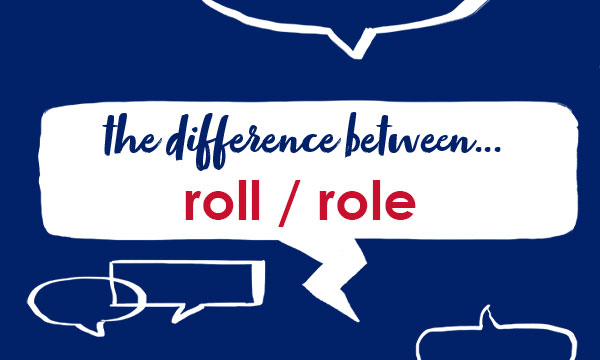This week we are looking at two words which are sometimes confused by learners of English: roll and role.
roll

A roll is a very small loaf of bread.
The soup is served with a roll and butter.

A roll of something such as cloth or paper is a long piece of it wrapped many times around itself or around a tube.
I bought a roll of wallpaper.
role

A role is one of the characters that an actor or singer plays in a film, play, opera, or musical.
She played the leading role in The Winter’s Tale.
Your role is also your position and what you do in a situation or society.
What is the role of the university in modern society?
He had played a major role in the formation of the United Nations.
Find out more in our English Usage article.
This blogpost is based on Collins COBUILD English Usage, written for learners of English. For more examples of English usage points, please visit: https://grammar.collinsdictionary.com/english-usage.
All opinions expressed on this blog are those of the individual writers, and do not necessarily reflect the opinions or policies of Collins, or its parent company, HarperCollins.




collins_dictionary_official
The home of living language. #wotd #wordlovers #collinsdictionary
Read our word of the week definitions and blog posts: